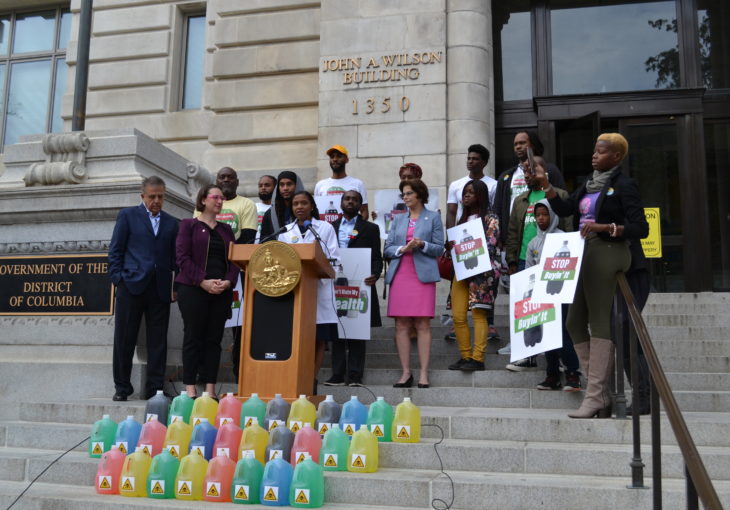Washington, D.C., October 8, 2019 –The American Heart Association (AHA) strongly supports legislation introduced today by D.C. Councilmembers Brianne Nadeau, Mary Cheh, Trayon White, David Grosso, Brandon Todd, Charles Allen, Elissa Silverman, Chairman Phil Mendelson and Anita Bonds that would levy a 1.5 cents per ounce tax on sugary drinks. The revenue raised from the tax will be invested in programs such as early childhood education, nutrition and food access and upgrades to parks that will help the most vulnerable District children and families live longer and healthier lives.
“We are thrilled that the D.C. Council will consider legislation to tax sugary drinks. This bill will build health equity in our communities, empower people to make healthier choices, and contribute to programs that help District residents live long and healthy lives,” said Dr. Roquell E.Wyche, MD, FACC, Greater Washington Region American Heart Association Board President and cardiologist, Chesapeake and Washington Heart Care. “We strongly urge the Council to take up this legislation and pass it without delay.”
More than 40,000 people in the United States die each year from heart problems as a result of consuming too many sugary drinks, which include sports drinks, fruit drinks with added sugars and sodas. Children on average drink 30 gallons of sugary drinks every year—enough to fill a bathtub—with both kids and adults at increased risk for heart disease and type 2 diabetes due to overconsumption of these drinks.
Sugary drinks also contribute to persistent health disparities in the District. On average, residents of DC’s lowest income neighborhoods live 16 years less than residents of the most affluent areas and have five times higher rates of type 2 diabetes. Of the top five leading causes of death in the District, four are diet-related chronic illnesses.
Sugary drink taxes in Seattle, Philadelphia, Boulder and California’s Bay Area have had a variety of positive impacts, from driving down sales of sugary drinks to raising revenue that supports critical investments in communities and families. In Philadelphia, for example, sales of sweetened drinks have declined by 38% since the city’s tax took effect—the equivalent to 83 million fewer cans of soda purchased—while thousands of children have been newly enrolled in high quality early childhood education programs.
